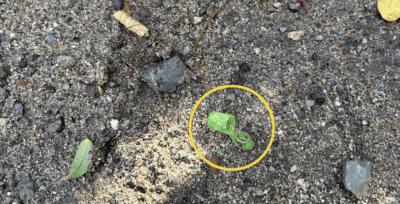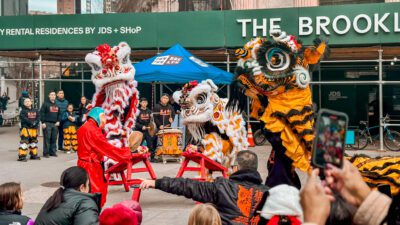A Heavenly Coincidence: Adam and Yasmin Green Talk Aladdin, Internet Privacy, and Collaboration
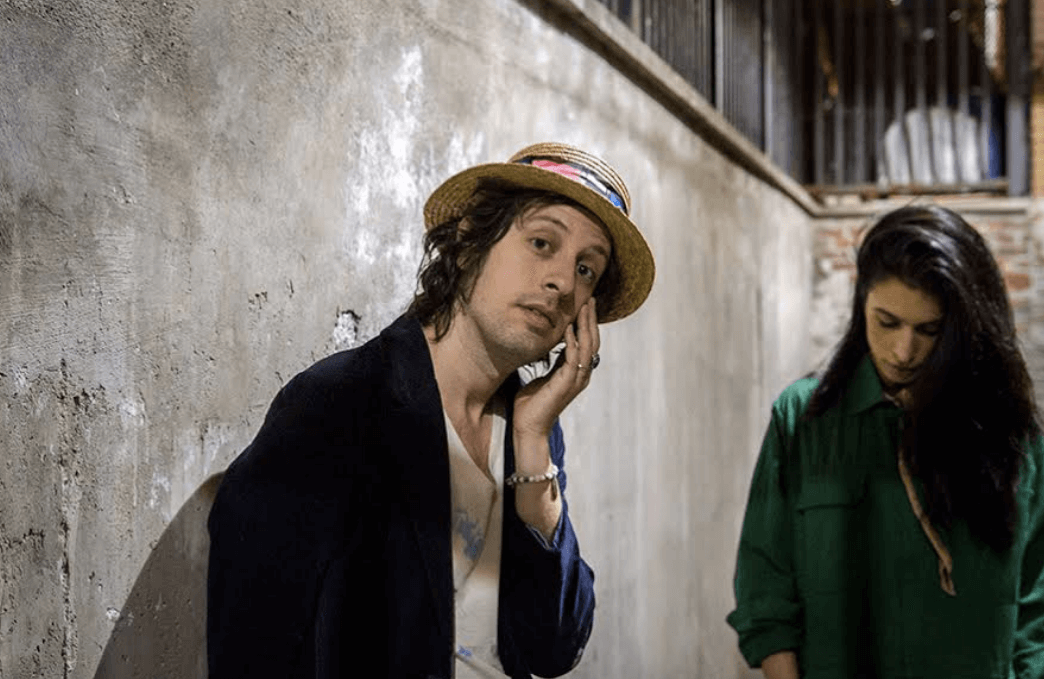 It’s a rotten age for romance in New York. In the land of swipe-right apps, we’ve grown accustom to the notion that a somehow perfect counterpart to ourselves exists, and if we aren’t constantly in a whirlwind state of butterflies-in-stomach, it’s time to move on. This is not a notion of “love” toward which its worth striving; it’s not love at all since it abandons love’s essential components of mutual respect, partnership, and the delicate weaving together of lives. Brooklyn is home to hook-ups, sure, but what’s love got to do with that? The idea of finding love in Brooklyn can seem downright hopeless.
It’s a rotten age for romance in New York. In the land of swipe-right apps, we’ve grown accustom to the notion that a somehow perfect counterpart to ourselves exists, and if we aren’t constantly in a whirlwind state of butterflies-in-stomach, it’s time to move on. This is not a notion of “love” toward which its worth striving; it’s not love at all since it abandons love’s essential components of mutual respect, partnership, and the delicate weaving together of lives. Brooklyn is home to hook-ups, sure, but what’s love got to do with that? The idea of finding love in Brooklyn can seem downright hopeless.
And yet, when I followed Adam and Yasmin (Yasi) Green into their studio workspace in Williamsburg, it was immediately clear that I was in the presence of something nearly foreign to me–lovers. Two romantic partners that seem to just get it.
The ex-Moldy Peaches frontman has recently released a feature film and album, Adam Green’s Aladdin, and Yasmin, a brilliant advocate for the use of technology for social good, accepted a new role with Jigsaw. We talked with the duo about Aladdin, Internet privacy, and how it doesn’t have to be love at first sight to be love.
What drew you to the story of Aladdin to begin with? What were some of your inspirations when working on the film?
Adam: I was attracted to Aladdin because it’s a love story, [I wanted to] sort of adapt it to be about modern times. I found myself writing about the real love that I found on planet Earth with Yasi, and about technology that was coming at me regardless of whether or not I even wanted it. I felt like the film needed to have a presence of tech. Yasi works at Google Ideas [Jigsaw], and a lot of our conversations revolve around tech. And that becomes content to our movie. The [Genie’s] lamp is a 3d printer in the film. Yasi also produced the movie, and did so while pregnant, which is crazy, so she’s the real hero.
Yasmin: Adam was pregnant with Aladdin when I met him! We realized how long it would take to execute Aladdin, and decided to do it now. Do everything together. And now we have two babies: Aladdin and our daughter. The film was the completion of massive, life changing events for us.
Ah, let’s go back to that for a moment-how did you two meet after all?
Adam: We met at a breakfast at Cafe Orlin. We sat across from each other, she was in town visiting. I was on a date with another girl. Yasi thought I was a total idiot–she did not like me. It was not love at first sight. Months after this, after Yasi moved to NYC, we started to know each other.
Yasmin: When Adam and I met, I had never been with anyone I thought i’d end up with. “Ending up” with someone had never factored into any of my previous relationships. I could be in a really happy relationship without thinking it was going to result in eternal union. When we met, the first two months, we were both physically attracted to each other but were repelled to each other’s personality. The idea of dating was kind of alien–after months of not being into each other, something really bizarre happened, the penny just dropped. I had never experienced anything like it. It was kind of “you are really brilliant, let’s do life together.” After that it was so crazy, it was very surreal.
“Doing life together,” is a lovely way to phrase it. Your companionship obviously extends beyond your marriage, tell me a bit more about your creative process, together and alone.
Yasmin: When you [Adam] and I met, you told me about this practice you were in by putting a stream of consciousness in a notebook, anything that crossed your mind. An assault of quip and intellect. And you had said you never shared those thoughts with anyone before, but you shared them with me–and you continue doing that now. But we started making our own catalogue of shared perspectives, ways that we agreed things should be done differently. We would string things together that form our worldview. We created our own version of how things should be–and a lot of that fed into Aladdin. Adam has his backstory and baggage, as do I, and we put that into that movie. Including our wedding vows. There is a wedding at the end, and it has out real vows. Our vows were based on that book, our notebooks. The more you know Adam, the more you understand how autobiographical the movie is.

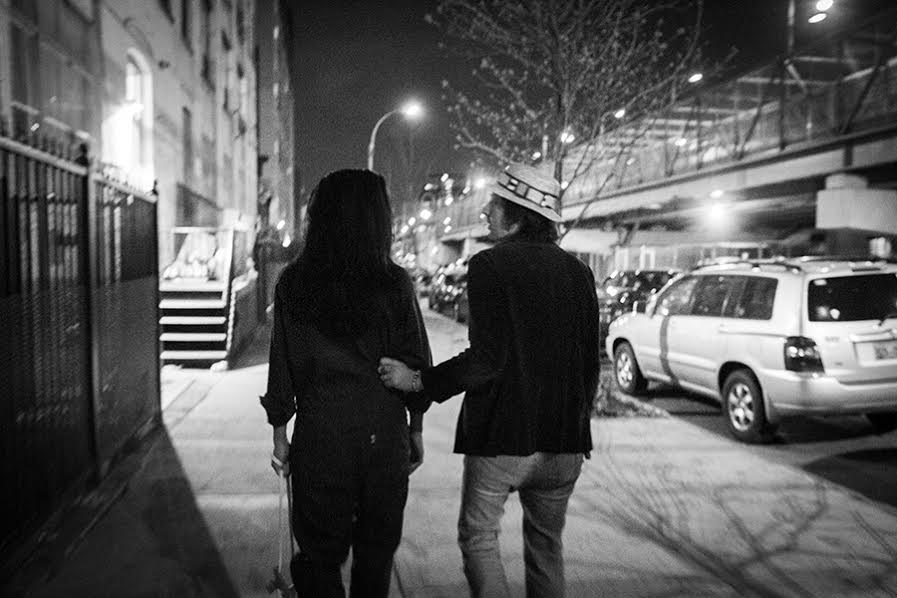

Adam: It’s the kind of thing I would tell people, say I was making Aladdin, and see their reaction. If you say something, you are more committed to making it. Natasha [Lyonne], who plays Aladdin’s mother in the film, said I asked her five years ago to play that part. I had people in mind for characters as I was writing the script. I knew Jack Dishel, from Moldy Peaches, i knew he was going to play Uncle Gary. The sultan, also played by Dishel, who is a comedic genius, the actor who was going to play the sultan cancelled and he subbed but he’s the best sultan ever.
I’m familiar with a lot of people’s characters and view it as an extension of our friendship. The characters in Aladdin are more like my subconscious, and I was working out the Aladdin myth in my subconscious. Letting it all come out and assigning to characters later. What am I thinking about? Why am I writing this? Very introspective in a way.
Yasmin: He also wrote all the music to the film, that’s on the album.
Adam: Yeah, that was an opportunity I felt like I missed with The Wrong Ferrari (Green’s first film). I felt that I missed out to make the music for it, to go on tour with it. I made the music for Aladdin beforehand. I knew when I was filming the scenes what would go where. I also wanted to film to look like my art, in a way. That is where the paper mache elements really came through. Making everything look like a giant sculpture.

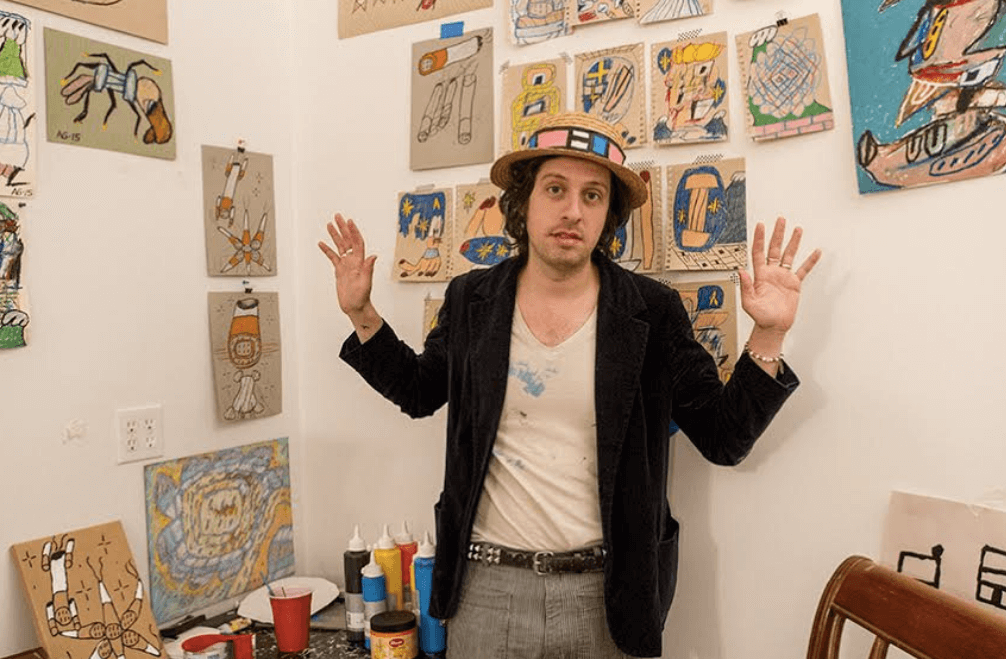

Adam: Conversations Yasi and I had were filtering into the feeling of wanting to tell Aladdin like we told it. Everyone knows the story, but it’s kind of a myth. Aladdin seemed like he chose love over unlimited material possessions for free. Also, the more I was thinking of the reality of it– a lot of the things we deal with in everyday life, the kind of intersection between geopolitics and technology and the environment and the planet, I wanted to play that out in the film. I’ve been feeling that we are possessed by technology, machines, and they are extracting our souls from our bodies. Forcing ourselves to view ourselves in third person, through social media. If you analyze the behavior people do on social media, and you apply it to normal social relationships, you’d consider that person to be insane. I don’t really know how i’m perceived on it.
Absolutely. I’m interested in the juxtaposition of it in relation to your lives: eyes are on you via social media and it can be really suffocating–but on the other hand work that Yasmin is doing with Jigsaw is using these same systems to empower others.
Adam: I know, it’s crazy. Yasi is working to lift the voices of those in parts of the world who have limited access to internet, or their internet is monitored.
Tell me a bit about your current projects at Jigsaw. I was interested in your SXSW session on online harassment–I know that has been a focus for you, Yasmin.
Yasmin: Jigsaw is a tech incubator that is looking at security challenges where people are going online in not safe places. People who are coming online in countries where there is conflict and repression. We are developing tech to help them. We started with technical threats, like if your internet was being surveilled, if people were hacking you. We ventured into this area of kind of softer threats, which is basically trolling. Governments are using it as a tool of repression, to the extent where they have troll armies, like Russia for example. They have these factories where people are paid hourly and have to make a quota of social media posts they have to do. Online intimidation is so sophisticated–the internet is a much more delicate system than people realize.
Damn, I definitely did not trolling was being used by governments–though this doesn’t surprise me. You all are investigating other types of web-based attacks and intimidation techniques, like DDOS. What can you do to help people in parts of the world who aren’t given access to the web for political reasons?
Yasmin: Exactly, we [Jigsaw] are interested in the geopolitical use of these tools.
I was recently in Iraq, where I was interviewing defectors from ISIS–Arabs and Kurds–talking about why they went, what it was like to live in the caliphate, how they escaped. People go there because they think ISIS is fighting for their rights. And once they get there, it is not at all what they imagined. They [defectors] were describing the sounds of being there, shells firing, helicopters, IED going off. And they were terrified. Young boys, 20 years old–you could just see in their faces that they made a rash decision to be there. When you arrive, your passport and phone is confiscated, and you have 6 weeks of training and religious indoctrination and then you get your phone back. But by then, people don’t know how to leave. There is a massive opportunity to use technology to help people who are there. Its not as easy as walking away. They are being surveilled. You can’t roam free.
So is a big motive behind collecting these stories to prevent future recruits?
Yasmin: We have this impression that it’s religion that draws people [to join ISIS], but its not, its social. We want to show people what it’s actually like to be there. We want to talk about brutality and corruption. If there was footage we could use to dissuade people from joining, it would be really powerful. That’s my goal for this year, to get access to as many defector voices as possible and publish their testimonies in a way that is irrefutable.
I’m impressed at your ability to stay focus on something so globally massive, like preventing future ISIS recruits, while still being able to participate in artistic endeavors with Adam.
Yasmin: He totally challenges me, it’s so much about accepting somebody.
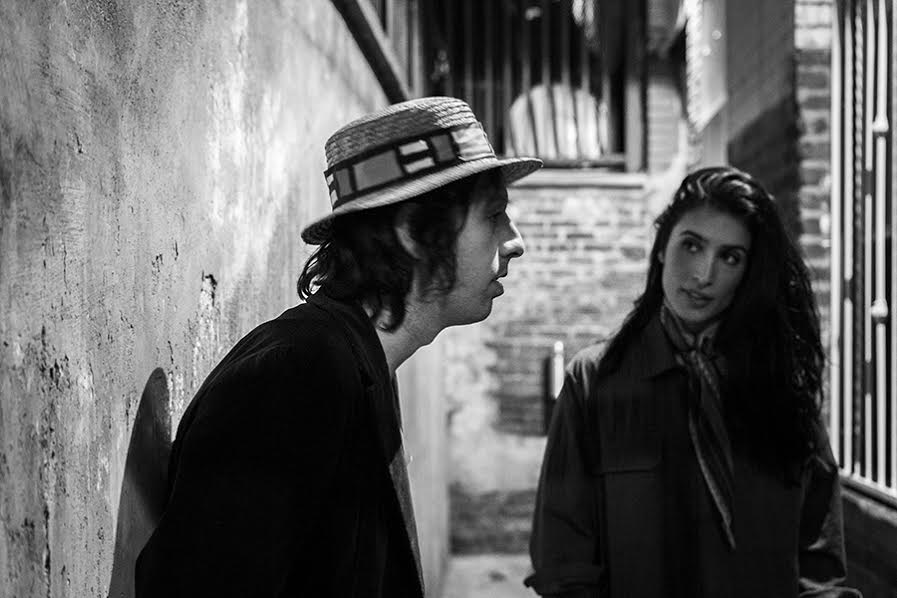

All photos by Jane Bruce
You might also like 














